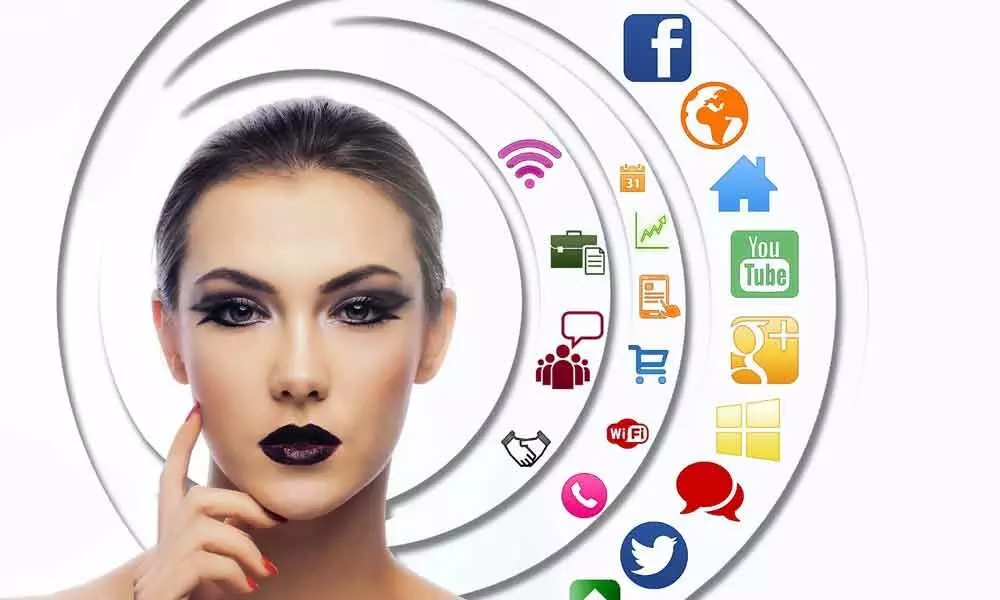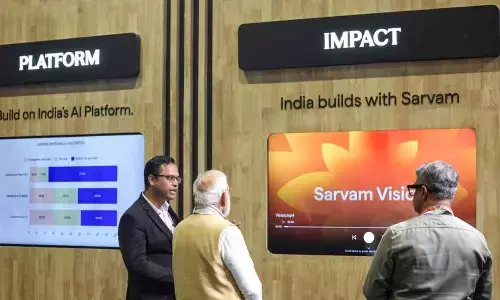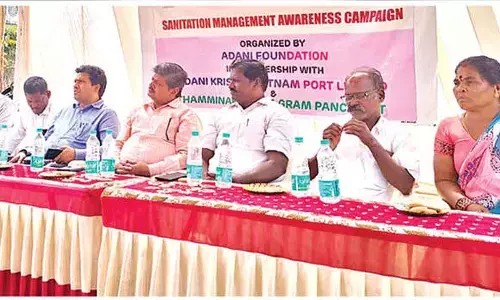Taking the controls back
How would you feel the day you finally delete all your social media accounts? That may be the day when your life will be back in your control
We live in an age where everything, literally everything, is just a click away. In the '90s when the internet was introduced, it swept away the world making it a global village. The simple electronic mail, now predominantly used in every field, broke the barriers of all communications. It was cheaper, faster and more reliable. Every 90s kid would have a funny (read weird and embarrassing) email address like [email protected] or [email protected] (you just think of any weird email id…you will find one for sure). And it was such a joy to receive a quick response from a person, sitting like 1,000 miles away on the other side of the world, in a minute or two. The internet was flaunted as the invention of the century, which it is.
It was the 90s and the sound of modem dialling to connect the internet was a sweet and rhythmic sound to the ears…From there till now the internet has come a long way. Now one just needs a smartphone and sim, with 4G (5G is already en route) facility, and voila! Now you are connected to the world.
Social media is a new network where almost everybody has his/her presence somehow imprinted on the digital cloud, some consciously and some unconsciously. What started as an easy way of communicating with the world now became a platform to exhibit every aspect of one's day to day life. Teens, students, employees are hooked to it and even your grandma uses Facebook or Instagram. The joyous platforms to connect has turned so toxic that people are losing touch with real life. Social media has been seen as the main source of depression, anxiety, etc., among the people and it is growing by the day.
Jaron Lanier, IT Guru and the world-famous Silicon Valley scientist-pioneer first alerted the masses to the dangers of social media. In his book 'Ten Arguments For Deleting Your Social Media Accounts Right Now' he explains why its toxic effects are at the heart of its design and presents 10 simple arguments why liberating yourself from its hold will transform your life and the world for the better. In the book, Lanier draws on his insider's expertise to explain precisely how social media works – by deploying constant surveillance and subconscious manipulation of its users.
In the preface, he explains it through a simple example of cats and dogs. We all are aware the internet is flooded with pictures and videos of cats and dogs. We can observe that the cats are in their moods and do not heed to their 'hoomans'; and on the other hand, dogs are just ready to take orders. Lanier observes that cats domesticated themselves in the world of humans, while dogs were domesticated by human beings. We have to be the cat in the world of social media and not the dogs, who are willing to do anything at the whim of social media.
"Some have compared social media to the tobacco industry, but I will not. The better analogy is the paint that contains lead. When it became undeniable that lead was harmful, no one declared that houses should never be painted again. Instead, after pressure and legislation, lead-free paints became the new standard," Lanier writes in the book.
"I speak as a computer scientist, not as a social scientist or psychologist. I can see that time is running out and doing nothing is not an option. We don't have as much in the way of rigorous science as would be ideal for understanding our situation, but we have enough results to describe the problem we must solve, just not a lot of time in which to solve it," he adds.
For 24-year-old Akash M, a software professional, checking social media before and sleeping and waking up is a norm. "I am using social media for ages now and I do realise that I am hooked to it. Most of the time in a gathering I tend to pick up my phone and get lost in the rabbit hole of social media. Whenever I get a chance, even for 30 seconds, I tend to check it out."
"The addiction is so much that I when I am dead sleepy, I just say to myself five more minutes and I sleep and the 'five minutes' just turn to hours and due to this I have deficit sleep and it is changing many things in my life such as my mood, mingling in social groups, mental health. The irony is that I got to know about this on social media," he adds.
It is not just this one case of Akash… There are scores of youngsters who are addicted to this new-age drug called 'The Social Media'.
While we are under the impression that we are gaining much from the internet; in the actual sense, we are giving so much more of ourselves for very little. Social media makes you lose your free will. You are somehow drawn towards it. So how can one be away from this?
Dr Purnima Nagaraja, Mental Health Professional, Dhrithi Wellness Clinic, says: "Evidence seems to be mounting that it there is a link between social media and depression anxiety and mental health disorders. In a world where both parents need to work to make ends meet, there is a growing disconnect between adults and their parent figures. One of the biggest differences seen in this generation compared to earlier generations is that they spend less time connecting with their peers, parents and other adults in person. They spend more time connecting electronically through social media leaving them less satisfied and more socially isolated. "
Dr Purnima also states that the less one's connected with humans, in a deep and empathetic way, the less one's getting the benefits of living in a society. The rise of internet lies, looking perfect, virtual friends and false personas also contribute to the increasing anxiety, guilt, lies and low empathetic behaviour.
"Not too long ago, we heard of a young girl, who committed suicide because she was trolled and called ugly. There is also the horrifying story of a young boy, who live-streamed his suicide on Facebook while the world watched. India ranks 6 in the world for highest suicide rates amongst youth. We have the highest suicide rate in the world. The reason for such high numbers can be attributed to lack of economic, social and emotional resources, more specifically, academic pressure, social, relationship, issues breakdown of support systems and the rise of gadget and social media involvement and addictions."
She says that in several studies teenage and young adults who spent most of their time on Instagram, Facebook, Snapchat and other platforms were shown to have a substantially higher rate of depression than those who spent less time. Does that mean that Instagram and Facebook, etcetera, actually are causing depression? "The studies show a correlation and not causation yet. In 2017, a study of over half a million 8th to 12th graders found that the number of depression people had gone up at 33 per cent between 2010 and 2015; the suicide rates for children had increased by 65 percent.
It is alarming to note that this trend of increased depression and alienation with real-life relationships is not restricted to children, who can still be influenced positively with some parental control. What do we do with grownups? While the new-age technology has given us the freedom to express ourselves, it also holds us in its grip, enticing us with unlimited information, entertainment and updates on everyone in your network, most of which is useless for personal growth or happiness. In an age and time when we are increasingly being controlled by the internet and cannot but stay hooked to it, it has become that much easier for agencies controlling online content to influence us. What we perceive as keeping a tab over the world, your friends, acquaintances, all and sundry, is, in reality, the other way around. You are trapped by the world wide web.
Ways to stop your social media addiction
Get a hobby
It is always good to focus on a hobby. If you like photography, then take your camera/phone and get going. PS: Don't post it on social media.
Use social media, but don't let it overpower your study/work time
As it is said too much of anything is bad. Just use FB, Insta, Twitter, etc to keep up with the world. Do not immerse yourselves so much in social media that you neglect your homework or job.
Avoid social media before/during lunchtime
Stay away from phone before and during meals. Talk with your friends/colleagues, increase you social IQ
Don't use social media when you're emotional
We tend to take rash decisions when we are emotional. Many people vent their anger on social media when they are emotional. This may come back to haunt you. It is better to refrain from it rather than getting embarrassed later.
Turn off your notifications
See no evil, hear no evil and do no evil. When you don't see the notifications, you will automatically be doing a great service to yourself by not taking any action on notifications
Spend more time with your loved ones
Life is short or is it longer…who knows? But it is always a right choice to spend more time with your loved ones. Go out for dinner, catch a movie or just stride to the beautiful parks in or near your neighbourhood. Remember ever minute counts!
Meet people in real life
Just switch off your internet on phone and meet your friend from school/college with whom you are planning to meet from eternity, but are feeling too lazy to go out. Hang out with real people than your FB 'friends'.
Make a to-do list and check one thing off your to-do list
Be sure to check off at least one task in a day or two. It will keep you occupied and when you check off that task your zeal to complete the next task will only increase. Next step: Try to do bucket list.
Make an inspiring playlist
Music is the fuel that keeps the soul running. Make a playlist of your favourite songs which will keep your spirits high.















